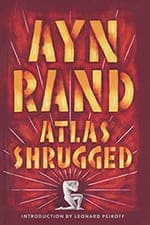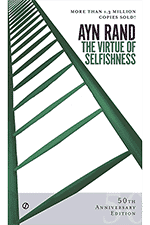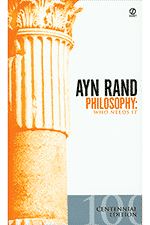Hi, Guest!


“To redeem both man and morality,” she argues in the book, “it is the concept of ‘selfishness’ that one has to redeem.”

In this radio interview, Ayn Rand discusses the purpose and proper structure of government, addressing such issues as the importance of a written constitution, the difference between a republic and a democracy, federalism, checks and balances, the judiciary, “one-man-one-vote” and filibusters.
The recording lasts 30 minutes.
This recording combines two radio interviews in which Ayn Rand responds to questions from university students about the role of the press in a free society. Rand touches on a variety of topics including the role of objectivity in news reporting, the importance of freedom of the press, the immorality of laws requiring “equal time” for opponents of a broadcaster’s editorial policy, why media coverage of the Vietnam War was poor, why a free press is crucial for fair and public trials, and why government licensing of TV and radio stations is a form of censorship.
This program lasts 57 minutes.
In this 1965 talk, Ayn Rand discusses the “anti-ideology” of pressure group warfare and unlimited majority rule known at the time as “government by consensus.” Rand explains why America, “a country which does abhor fascism, is moving by imperceptible degrees — through ignorance, confusion, evasion, moral cowardice, and intellectual default — not toward socialism or any mawkish altruistic ideal, but toward a plain, brutal, predatory, power-grubbing, de facto fascism.”
The lecture lasts 54 minutes.
In this radio interview, Ayn Rand explains her theory of rights as a social application of morality, designed to ensure “those conditions of existence which are required by man’s nature for his proper survival.” The individual’s rights to life, liberty, property and the pursuit of happiness, she argues, protect his ability to act on his own rational judgment, to choose his own values, and to keep the material product of his efforts. Rand addresses and rejects theories that rights are gifts from a supernatural power or from society. She also discusses the contradiction involved in asserting welfare rights to goods and services.
The program lasts 25 minutes.